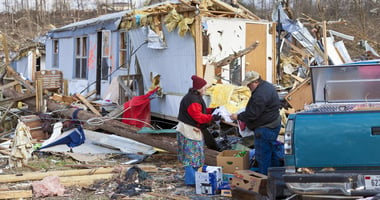The Substance Abuse and Mental Health Services Administration (SAMHSA) today released a smartphone...
Simple Screening Tool IDs Disaster Victims Needing Mental Health Care
 |
Researchers tested 59 emergency medical technicians, nurses, mental health workers, public health workers, and laypersons using two screening tools, the Fast Mental Health Triage Tool (FMHT) and the Alsept-Price Mental Health Scale (APMHS). The respondents evaluated 10 vignettes involving disaster victims at baseline and then another 10 using one of the tools. The FMHT flowchart proved significantly more useful than the APMHS and was better than using no tool in correctly triaging the medically cleared survivors to the correct mental health services, wrote Donald Brannen, M.H.S.A., M.S., of the Greene County Medical Reserve Corps in Xenia, Ohio, and colleagues in the journal Disaster Medicine and Public Health Preparedness online October 29. The flowchart raised baseline mental health triage scores from 51.5% to 67.3%. The tools were designed to improve mental health triage and not to replace treatment for mental health sequelae of a disaster, wrote Brannen and colleagues. “Mental health triage is a separate set of skills, knowledge, and abilities that benefits from a [screening] tool.”
For extensive disaster-related mental health information, see APA's Web site at www.psychiatry.org/practice/professional-interests/disaster-psychiatry/disaster-psychiatry.
(Image: Frontpage/Shutterstock.com)





